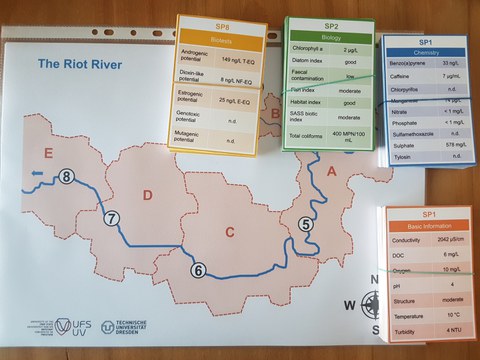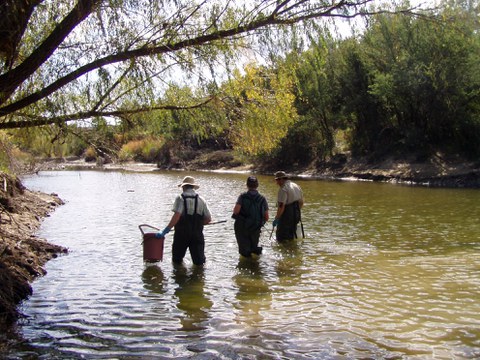Managing surface water quality: General framework, tools and implementing disaster management aspects in urban areas; Bloemfontein, South Africa (2022)
January 24th - 28th 2022 Bloemfontein, QwaQwa, Cape Town and Dresden
funded by VolkswagenStiftung
Jointly organized by University of the Free State, Bloemfontein and the Cape Peninsula University of Technolgy, Cape Town, South Africa and Technische Universität Dresden, Germany.
Links:
- Podcast - Join the introduction of the developer team
- Flyer
- Programm
- Venue
- Press release I
- Participation and Application for Students/Academia
- Participation and Application for Authorities/privat sector

The Riot River
Water is a basic resource upon which communities rely for their health, well-being and economic development and growth. Many countries, not only in southern Africa, struggle with the negative consequences of poor surface water quality, which may threaten their food security and livelihoods. An important first step on the way from polluted to cleaner surface water is conducting a comprehensive assessment of present water quality. In Germany and other countries of the European Union, many water quality assessment tools have been developed over the last decades. The successful application and implementation of these tools and programs have led to an improvement of surface water quality in these countries. One important tool in this context is the monitoring of aquatic systems. Monitoring, which can be defined as “something or someone who warns an overseer” (Rüdel et al. 2007), has proven to be useful, especially where chemical and biological monitoring are combined.

Sampling
While biological monitoring may be useful as a first step screening tool, site-specific physical and chemical monitoring may provide deeper insight into the type and sources of pollution.
A summer school held in 2019 in Bloemfontein at the University of the Free State focused on the water quality assessment of rivers, which are highly integrated systems, and cannot be separated from their catchments. This time the focus will shift from rural to urban areas and will address side specific challenges like urban planning, industrial effluents, social aspects and informal settlements. The presentations will include perspectives from both Germany and southern African countries.

Summer school

